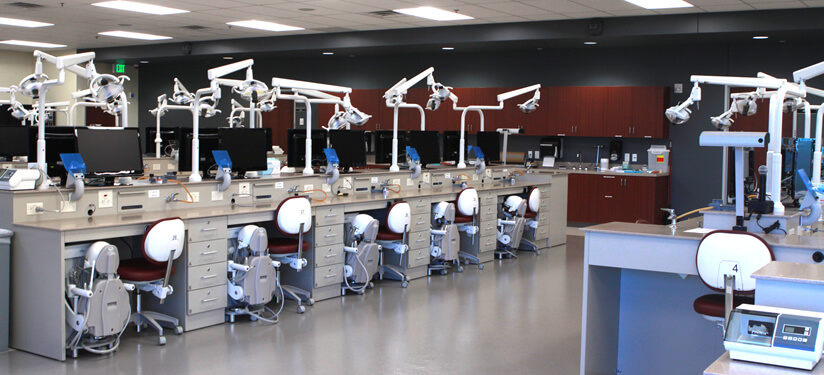
Dental laboratories is the general term for Crowns Labs, Implant Labs, and Denture Labs and are specialists in fabricating implants, crowns, bridges, dentures based on the prescription of a dentist. Although we are based in Manhattan we work with dental clinics from the greater NYC area.
Dental labs allow dental clinics to receive the highest quality dental implants, crowns, and dentures made by experienced and Certified Dental Technicians. If you live locally in NYC you can submit a case or for your convenience, you can submit a case digitally as well. This allows you to keep your costs down while not sacrificing quality for your patients.
Ultimate Dental Lab sells multiple FDA approved products made from the highest grade materials including dental crowns, dental implants, and dentures
The challenges of dentistry that often come up as dentists think about launching a digital practice are: cost, technology barriers, the quality of digital impressions, and a lack of confidence and comfort in technology.
A study from the American Dental Association (ADA) published in August 2021, has found that 53% of those practices surveyed are using an intraoral scanner in the USA. The study, published in August 2021, is the organization’s most recent to date.
Some of the newer technology like 3D scanners, CBCT, intraoral scanners, and high-quality software management are quickly becoming the standard of care in the dental office.
The ‘father’ of digital dentistry is the French professor François Duret, who invented dental CAD/CAM in 1971.
One major benefit of digital dentistry is the use of advanced diagnostics technology like intraoral scanners and digital X-rays. Intraoral scanners create 3D images of the inside of the mouth by using optical scanning technology.
Accuracy of digital impression scans
The superimposition color map analysis showed that deviations of less than 20 μm ranged from 16.59% to 54.44% with a mean of 34.25% as the deviations ratios mean of out-of-field [−20, +20 μm] was 65.73% and was generalized on the entire dental arch.
Precision and accuracy are two of digital dentistry’s key benefits. Cone beam computed tomography (CBCT) and digital radiography are two examples of digital imaging technologies that enable dentists to get extremely precise and detailed pictures of the teeth and surrounding tissues.
In laser scanning, concentrated light is used which is accurate and safe. Thorough details of the gums and teeth are captured. Similarly, digital optical scanners are accurate and safe too. There is no doubt that digital impressions are more accurate, efficient and productive than traditional impressions.
Total calculated costs for digital and conventional impressions were $21.42 and $29.40 per arch and $37.66 and $102.10 per patient, respectively.
When your dentist has completely prepared the teeth that require restoration, a wand is used to take a digital image of the teeth. Dr. Tau explains that taking a digital impression of prepared teeth takes approximately a minute and a half, and an impression of the teeth in the opposite arch takes a mere 45 seconds.
Frequently, impressions are measured by cost per mille (CPM), where mille refers to 1,000 impressions (or cost per thousand). A banner ad might have a CPM of $5, meaning that the website owner receives $5 every time an ad on his website is displayed 1,000 times.
Contributed by: Ultimate Dental, Denture, Crown & Implants Lab, 5 Pennsylvania Plaza #613, New York, NY 10001, https://ultimatedentallab.com/.



